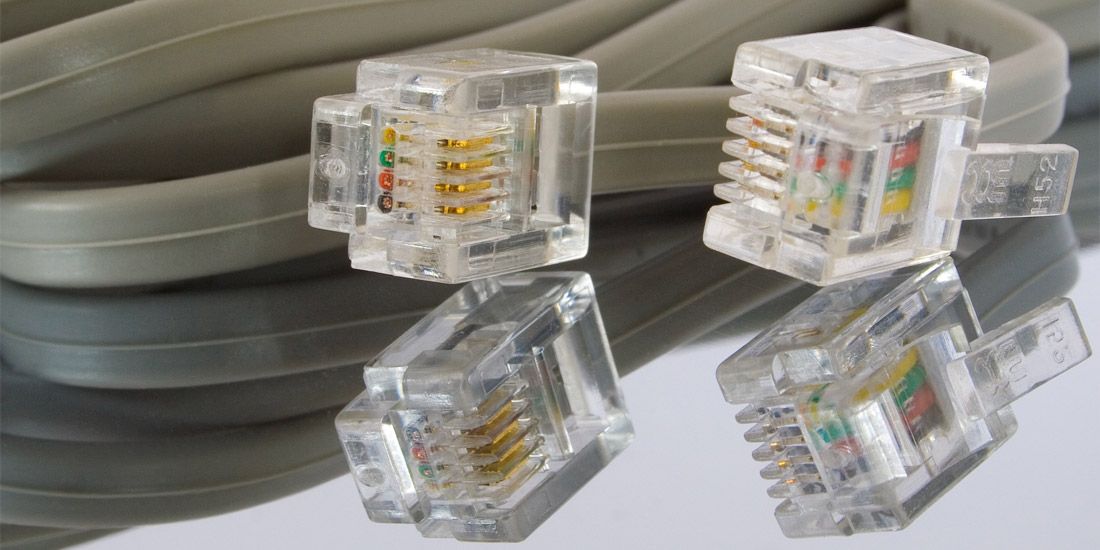The copper switch off: will I be affected?
13th September, 2022 | Home / Blog / Broadband and technology / The copper switch off: will I be affected?Reading time: 8 minutes

BT Openreach is set to retire all of their copper wire broadband and telephone lines in what is known as The Copper Switch Off.
You may be wondering, what does this mean for me, and will I be affected? Read on to find out more.
What is ‘The Copper Switch Off’ and when is it going to happen?
The ‘Copper Switch Off’, or the Openreach Copper Switch Off, refers to Openreach’s plan to shut down all of its copper broadband and telephone line networks, in favour for new, faster and more reliable technology.
Even though copper has provided us with a telephone service since 1911, and broadband since the introduction of ADSL(asymmetric-digital-subscriber-line), and more recently, FTTC(fibre-to-the-cabinet), it has become outdated and will be replaced with full fibre, FTTP(fibre-to-the-premises) by 2027.
What’s the analogue switch off?
The Analogue Switch Off is planned two years before this, in 2025. This is where the analogue telephone network used for calls will be retired.
Most premises in the UK are connected by copper cables from Openreach/BT, who plan to retire parts of the copper network, as the fibre network is rolled out.
They’ve decided that once an exchange is able to serve at least 75% of an area with FTTP, they will stop selling copper products.
Will the copper switch off affect me?
If you rely on a copper line for your broadband and/or telephone, you will be affected if you choose not to upgrade and you could end up losing your service at the end of your contract.
If you already have a fibre service, you shouldn’t be affected much, or at all by the change, and since you are not relying on copper wires for your connection you should experience little to no disruption.
There are a vast 25 million homes in the UK – all which need to be upgraded. To connect each one it will take a lot of time and resources as a whole new network needs to be built from scratch.
This involves erecting new poles, laying cable into existing ducts and even building new ducts in place of ones which have collapsed or are unusable.
Not all homes will be able to receive a fibre service by the switch off date, and some may never do. Instead, these homes will have to switch to a mobile service such as 4G for their telephone and broadband.
If you currently have FTTC(fibre-to-the-cabinet), but not FTTP(fibre-to-the-premises), don’t worry, your broadband won’t be affected by the switch off, as the copper lines which run from your home will be kept live until you have a new full fibre service, even after the switch off date.
It’s only the copper cables which run from the street cabinets, to the local telephone exchange and beyond that will be retired.
Will I ever be upgraded to full fibre?
As mentioned before, some UK premises will not get an FTTP connection straight away, or at all. Specifically, rural locations are less likely to be connected by the switch-off date, or at all because there are more challenges associated with rural locations and it costs more to connect them.
Rural premises are likely to be further apart, in more challenging terrain, and therefore require more manpower and resources per connection. So, some rural locations may not be viable for traditional internet service providers to build as part of a purely commercial venture.
This is where the government steps in with a number of different grants, schemes and initiatives to help shunt the cost of the build.
Unfortunately, government help isn’t available everywhere, so there are bound to be some locations which can’t gain access to FTTP.
The good news is that there are alternative ways to get broadband to your property, such as 4G, satelite and fixed wireless broadband which can all deliver much better speeds than ADSL connections for a similar price.
Airband are rural broadband specialists, delivering fibre-to-the-premises broadband where other providers can’t, or won’t go. We offer a range of packages, fibre and wireless, which range all the way to 900Mbps, so there’s bound to be a package perfect for you.
Use our broadband coverage checker to find out if you’re in range for an ultrafast connection with Airband.
How should I prepare for the copper switch off?
There are some devices that you may not have noticed rely on a copper based connection, such as security systems. It may be worth doing an audit of your home or business before the switch-off date for anything that may be affected, so that you don’t get any nasty surprises.
If one of your services is likely to be affected by the switch-off, it is your service provider’s job to keep you informed – so don’t stress. You won’t wake up one morning with all your technology suddenly obsolete!
Openreach say goodbye to the copper network, upgrade now with Airband
If you’re thinking of upgrading your service to FTTP, use our broadband coverage checker to see if you’re in range for an ultrafast Airband connection.
FAQs about the Copper Switch Off
Openreach announced the turning off of the old copper network across the UK. That means no more copper based services in the UK. What else should you know?
Can I still get a copper connection?
If you are one of the customers who can’t access fibre broadband where you are at the moment, you can still get your copper based broadband.
Is full fibre broadband future proof?
Yes. Fibre optic cables will connect local homes and businesses to the local exchange.

Do you need a landline phone to get fibre network connections?
No, that’s the great thing about fibre broadband. No phone line required.
Find out more about why: https://www.airband.co.uk/do-you-need-a-phone-line-to-get-broadband/
Why is a fibre network better than old copper cables?
Full fibre is faster, better and more reliable than the old copper products. Everything gets quicker for homes and businesses.
Faster online streaming and better connections for video conferencing on Microsoft Teams and so on. If you use cutting edge voice technology, that will also be that much faster too.
Can you still make phone calls when you upgrade to fibre broadband?

Yes, that’s one of the fantastic benefits of the future proof fibre. When you upgrade to the fibre network, your phone calls are made through the internet, using VoIP (Voice over Internet Protocol). That’s why you don’t need a phone line to sign up to full fibre.
Get started with our VoIP service, Airband Talk now from as little as £4/month with our fibre broadband.
What is a public switched telephone network?
Simply put, a public switched telephone network (PSTN) is the main telephone network which allows you to make landline telephone calls.
What is an integrated service digital network?
The integrated service digital network (ISDN) is similar to the PTSN, where it is a network that also uses the same copper cable infrastructure a lot of the time, but can also use fibre optic cables.
The PSTN and ISDN will both be retired in December 2025. After this, all phone lines will use VoIP (Voice over Internet Protocol) technology instead. This is also the same with other systems that use ISDN or PSTN, like older CCTV networks and security systems.
Upgrade now with Airband
If you’re thinking of upgrading your service to FTTP, use our coverage checker to see if you’re in range for an ultrafast Airband connection.
Related Articles
Check availability:


